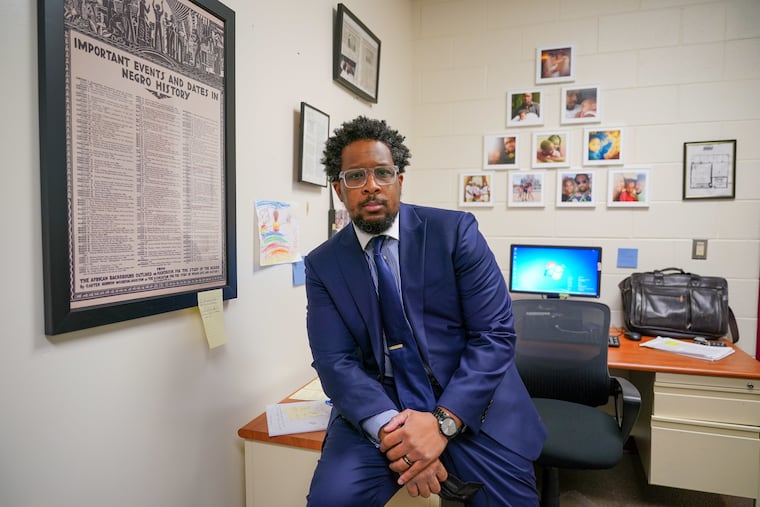To recruit Black teachers, do the work
Black students who have at least one Black teacher have improved educational outcomes.

About this series
‘Excuses tend to get in the way.’
Pennsylvania has a teacher-shortage problem. What else is new? So do other states.
What else is new is that the state Department of Education has a plan to increase the number of teachers by thousands by 2025, which includes expanding teacher apprenticeships and easing teacher certification guidelines, as well as ramped-up teacher recruiting. But to solve the teacher-shortage problem, the state must address an equally troubling problem: the lack of Black teachers in Pennsylvania.
According to the School District of Philadelphia, Black teachers are only 23.5% of the Philadelphia teacher population, whereas Black students make up 48.4% of all students. Considering the data that Black students who have at least one Black teacher have improved educational outcomes, it is imperative for more Black teachers to be in front of classrooms in the state.
This must be a priority for the Department of Education, and officials have said as much. Nevertheless, commitments to hiring more Black teachers have been made in the past from policymakers and district leaders nationwide, but the numbers remain the same. Excuses tend to get in the way.
One excuse is that you can’t hire Black teachers just because they are Black or you’ll compromise teacher quality. I assume these individuals believe that teacher quality isn’t compromised when white teachers outnumber teachers of color four to one nationally, and nine to one in Pennsylvania.
Folks making this excuse are ready to safeguard against perceived mediocre Black teachers, yet seem unwilling to explore the very real possibility of mediocre white teachers, but I digress.
Another excuse is that while hiring Black teachers is a priority, no one knows where to find them. Frankly, that’s a cop-out. Folks making that excuse either don’t want to hire Black teachers or refuse to do the work of reaching out to Black teachers and prospective Black teachers.
To meet the moment of filling teacher vacancies in the state, a solution must be for the Pennsylvania Department of Education to actively seek out Black educators — specifically, prospective Black educators. To do that, it must establish partnerships with HBCUs: historically Black colleges and universities.
According to a 2016 Center for Minority Serving Institutions report, HBCUs conferred 26% of all education degrees earned by Black people. Naturally, you may wonder why the Department of Education should concentrate on HBCUs when the remaining 74% of Black educators earn their degrees at non-HBCUs. It’s because the 74% Black education degree recipients — representing 4,061 graduates — are spread among 3,882 higher-education institutions, whereas the 26% of those degree recipients — a total of 1,719 Black teachers — are spread among 101 HBCUs.
In other words, non-HBCUs produced an average of one Black graduate with an education degree; HBCUs produced an average of 17.
Thankfully, Pennsylvania has two of its own HBCUs: Cheyney University of Pennsylvania, with undergraduate education programs, and Lincoln University, with its own school of education. In addition to those, education officials can partner with HBCUs in neighboring areas like Delaware State University, Howard University, or Morgan State University.
Doing so will require the Department of Education, as well as district leaders, to be courageous.
» READ MORE: Why is no one talking about Doug Mastriano’s plan to destroy public education in Pa.?
We live in a politically charged society where there is a backlash from white parents against anything relating to teaching or executing racial justice. White parents are storming school board meetings, policymakers are changing laws, and, if Doug Mastriano is elected, Pennsylvania will have a governor who would support these actions.
Doing what’s right for Black children — making a concentrated effort to hire Black teachers — in this environment will likely be accompanied by backlash, vitriol, and possible job loss. Let’s see if education officials are ready to meet this moment and stand tall for Black children.
Rann Miller is an educator and freelance writer based in southern New Jersey. His “Urban Education Mixtape” blog supports urban educators and parents of children attending urban schools. @UrbanEdDJ
The Philadelphia Inquirer is one of more than 20 news organizations producing Broke in Philly, a collaborative reporting project on solutions to poverty and the city’s push toward economic justice. See all of our reporting at brokeinphilly.org.